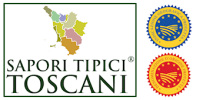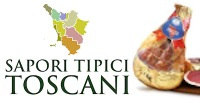Our network:
Sunday 22 December 2024
Borgo d’Ovile
Via Vallerozzi, the heart of the area of town controlled by the Contrada della Lupa, is the street that leads into the densely populated Ovile quarter, which begins at the 13th century Porta Ovile and the Oratorio di San Rocco, the oratory of the Contrada della Lupa. Originally this was an area inhabited mainly by shepherds and their flocks.
Down Via Vallerozzi to the left is the Fonte Nuova d’Ovile fountain where women would come to wash their linen. One of the finest fountains in Siena, the Fonte Nuova d’Ovile was designed by Camaino di Crescentino and Sozzo di Rustichino, and was built between 1296 and 1303 in the gothic style, with two large acute arches clearly inspired by the architecture of Cistertian monasteries. Intended to supply this area of town with running water, both for agricultural purposes and for the many craftsmen who had their workshops here, the Fonte Nuova d’Ovile is one of the twelve fountains and 350 cisterns in Siena, all of which were fed by a 25 kilometre long underground aqueduct known as Bottini, which carried water from a spring in the surrounding countryside.
At Porta Ovile turn right up Via del Comune, which runs through the area of town controlled by the Contrada del Bruco to the Basilica di San Francesco, built in 1475. To the right of the basilica is the former Convent of San Francesco that today houses several faculties of the University of Siena.
Down Via Vallerozzi to the left is the Fonte Nuova d’Ovile fountain where women would come to wash their linen. One of the finest fountains in Siena, the Fonte Nuova d’Ovile was designed by Camaino di Crescentino and Sozzo di Rustichino, and was built between 1296 and 1303 in the gothic style, with two large acute arches clearly inspired by the architecture of Cistertian monasteries. Intended to supply this area of town with running water, both for agricultural purposes and for the many craftsmen who had their workshops here, the Fonte Nuova d’Ovile is one of the twelve fountains and 350 cisterns in Siena, all of which were fed by a 25 kilometre long underground aqueduct known as Bottini, which carried water from a spring in the surrounding countryside.
At Porta Ovile turn right up Via del Comune, which runs through the area of town controlled by the Contrada del Bruco to the Basilica di San Francesco, built in 1475. To the right of the basilica is the former Convent of San Francesco that today houses several faculties of the University of Siena.
Booking.com
• Siena in the Renaissance
• Siena in the Middle Ages
• Siena in Antiquity
• Town Map Siena
• Farm Holidays and Country Houses
• Residence, Apartments
• Bed & Breakfasts
• Historical Residences
• Last Minute Siena
• Restaurants
• Pubs & Wine Bar
• University for Foreigners
• Palazzo Chigi-Saracini
• Palazzo d’Elci degli Alessi
• Loggia della Mercanzia
• Palazzo Sansedoni
• Palazzo Chigi-Zondadari
• Fonte Gaia fountain
• Carthusian Monastery of Pontignano
• Forte di Santa Barbara
• The Duomo – The Cathedral of the Assunta
• Church of the Osservanza
• The Oratory of San Bernardino
• Church of San Francesco
• Short Biography of St Catherine of Siena
• St Catherine Sanctuary
• Church of S. Niccolò al Carmine
• Bologna-Buonsignori museum
• Accademia dei Fisiocritici
• I Musei Senesi
• The Palazzo Pubblico and the Torre del Mangia
• Piazza del Campo
• The Montagnola Senese and the Fortified Village of Sovicille
• The Castles of Belcaro and Quattro Torri
General information
• Town map • Siena in the Renaissance
• Siena in the Middle Ages
• Siena in Antiquity
Transport in town
• Map of Hotels in Siena • Town Map Siena
Transport out of town
• Train services
Where to Stay
• Hotels • Farm Holidays and Country Houses
• Residence, Apartments
• Bed & Breakfasts
• Historical Residences
OFFERS & LAST MINUTE
• Reservation Services Siena • Last Minute Siena
Where to eat and drink
• Disco Dancing • Restaurants
• Pubs & Wine Bar
Education
• Siena University • University for Foreigners
Art and monuments
• Palazzo Piccolomini and Palazzo delle Papesse • Palazzo Chigi-Saracini
• Palazzo d’Elci degli Alessi
• Loggia della Mercanzia
• Palazzo Sansedoni
• Palazzo Chigi-Zondadari
• Fonte Gaia fountain
• Carthusian Monastery of Pontignano
• Forte di Santa Barbara
Art and religion
• Church of Sant’Agostino • The Duomo – The Cathedral of the Assunta
• Church of the Osservanza
• The Oratory of San Bernardino
• Church of San Francesco
• Short Biography of St Catherine of Siena
• St Catherine Sanctuary
• Church of S. Niccolò al Carmine
Museums and galleries
• The Museo Civico • Bologna-Buonsignori museum
• Accademia dei Fisiocritici
• I Musei Senesi
Art and tourist attractions
• Cappella di Piazza • The Palazzo Pubblico and the Torre del Mangia
• Piazza del Campo
• The Montagnola Senese and the Fortified Village of Sovicille
• The Castles of Belcaro and Quattro Torri
Booking.com
• The July and August Palio
• The Contrade
• The Days of the Palio
• The Drappellone
• The Eve of the Palio
• The Corteo Storico Procession
• The Race
• The Patron Saint and Oratory of Each Contrada
• Weekly Appointments in each Contrada from April onwards
• Croce del Travaglio Place
• From Piazza del Campo to the Duomo Along Via di Città
• The Curves of Piazza del Campo
• Costarella dei Barbieri street
• Borgo d’Ovile
• The Terzo of Camollia – main streets
• Casato di Sopra e Casato di Sotto
• Terzo di San Martino district
• The Terzo di Città District - Via Stalloreggi, Via San Quirico
• The Terzo di Città District – The Pinacoteca Nazionale
• Golf courses in Siena and Tuscany
• Wedding in Tuscany - Siena area
• San Casciano dei Bagni
• Chianciano Terme
• Bagni San Filippo
• Bagno Vignoni
• Rapolano Terme - Baths of San Giovanni and Baths of the Antica Querciolaia
• The Countryside around Siena and its Thermal Water Springs
• SkiPass Monte Amiata
• WebCam sul Monte Amiata
• Meteo Monte Amiata
• The Val d’Orcia and Its Main Towns
• Pienza - the old town centre
• Montepulciano - the old town centre
• San Quirico d’Orcia - the old town centre
• Montalcino and the Land of Brunello
• The Abbey of Monte Oliveto Maggiore and the Crete
• The Crete Senesi
• Castellina in Chianti and the Via Chiantigiana Towards Siena
• Siena and Southern Chianti - from the Castle of Montalto to the Castle of Brolio and on to the Castle of Meleto
• The Chianti Hills - Monte Calvo, Monte Luco and Monte San Michele
• Cortona and the Valdichiana
• San Gimignano - The old town centre and its major sights
• The Val d’Elsa - Monteriggioni and Colle di Val d’Elsa
• Along the Old Via Francigena
• Oleum Evo online selling
• Sapori Tipici Italiani buy online now
• il Prosciutto Cotto
The Palio of Siena
• The Origins • The July and August Palio
• The Contrade
• The Days of the Palio
• The Drappellone
• The Eve of the Palio
• The Corteo Storico Procession
• The Race
• The Patron Saint and Oratory of Each Contrada
• Weekly Appointments in each Contrada from April onwards
Sightseeing
• Via di Città (formerly Via Galgaria), Siena’s Most Elegant Street • Croce del Travaglio Place
• From Piazza del Campo to the Duomo Along Via di Città
• The Curves of Piazza del Campo
• Costarella dei Barbieri street
• Borgo d’Ovile
• The Terzo of Camollia – main streets
• Casato di Sopra e Casato di Sotto
• Terzo di San Martino district
• The Terzo di Città District - Via Stalloreggi, Via San Quirico
• The Terzo di Città District – The Pinacoteca Nazionale
What to see & do
• Wedding in Siena • Golf courses in Siena and Tuscany
• Wedding in Tuscany - Siena area
• San Casciano dei Bagni
• Chianciano Terme
• Bagni San Filippo
• Bagno Vignoni
• Rapolano Terme - Baths of San Giovanni and Baths of the Antica Querciolaia
• The Countryside around Siena and its Thermal Water Springs
Monte Amiata
• Monte Amiata - nature tourism the year round • SkiPass Monte Amiata
• WebCam sul Monte Amiata
• Meteo Monte Amiata
Specials - Out of town
• Gift Ideas for traveling • The Val d’Orcia and Its Main Towns
• Pienza - the old town centre
• Montepulciano - the old town centre
• San Quirico d’Orcia - the old town centre
• Montalcino and the Land of Brunello
• The Abbey of Monte Oliveto Maggiore and the Crete
• The Crete Senesi
• Castellina in Chianti and the Via Chiantigiana Towards Siena
• Siena and Southern Chianti - from the Castle of Montalto to the Castle of Brolio and on to the Castle of Meleto
• The Chianti Hills - Monte Calvo, Monte Luco and Monte San Michele
• Cortona and the Valdichiana
• San Gimignano - The old town centre and its major sights
• The Val d’Elsa - Monteriggioni and Colle di Val d’Elsa
• Along the Old Via Francigena
Typical products
• Typical Tuscan flavours • Oleum Evo online selling
• Sapori Tipici Italiani buy online now
• il Prosciutto Cotto









